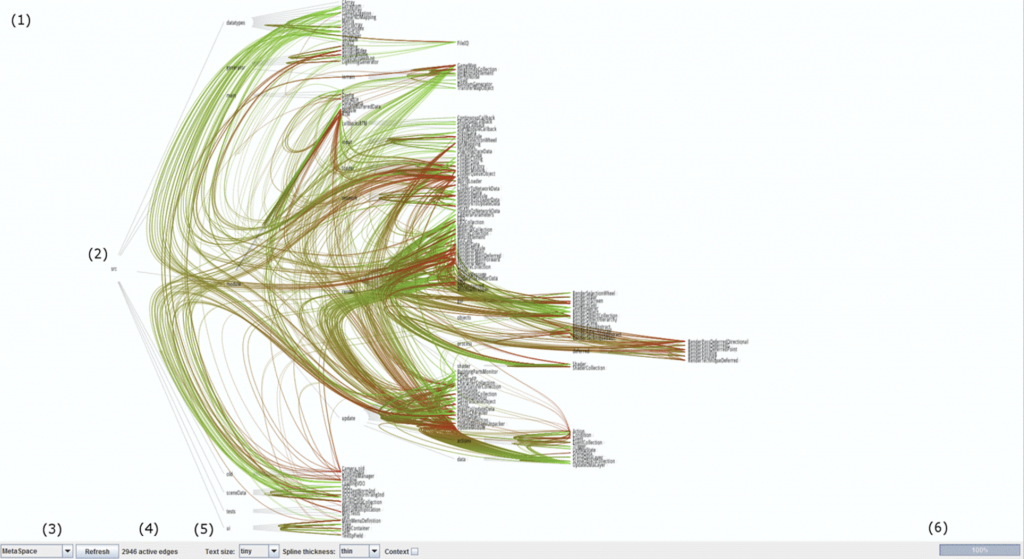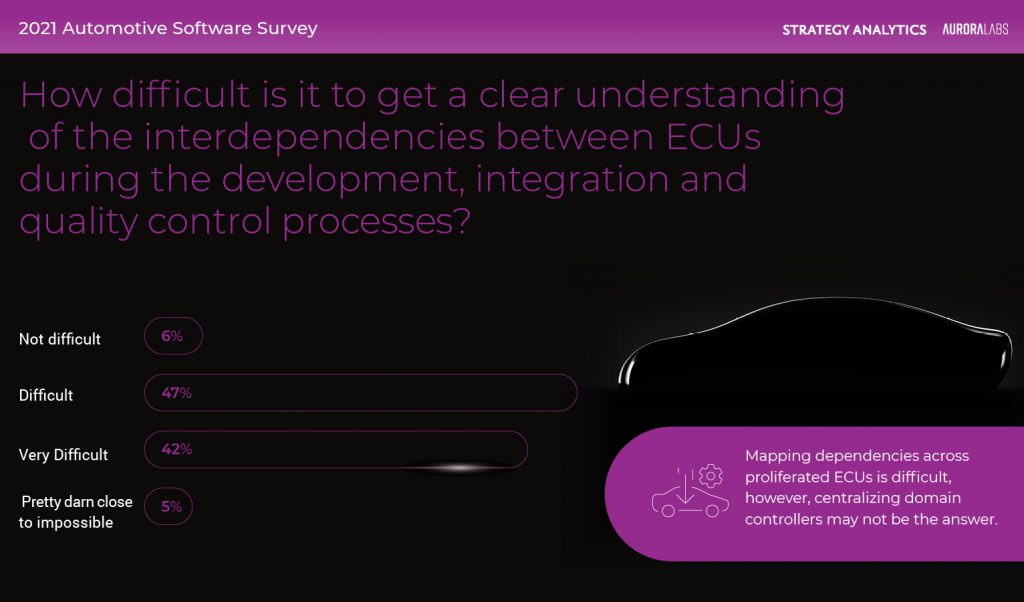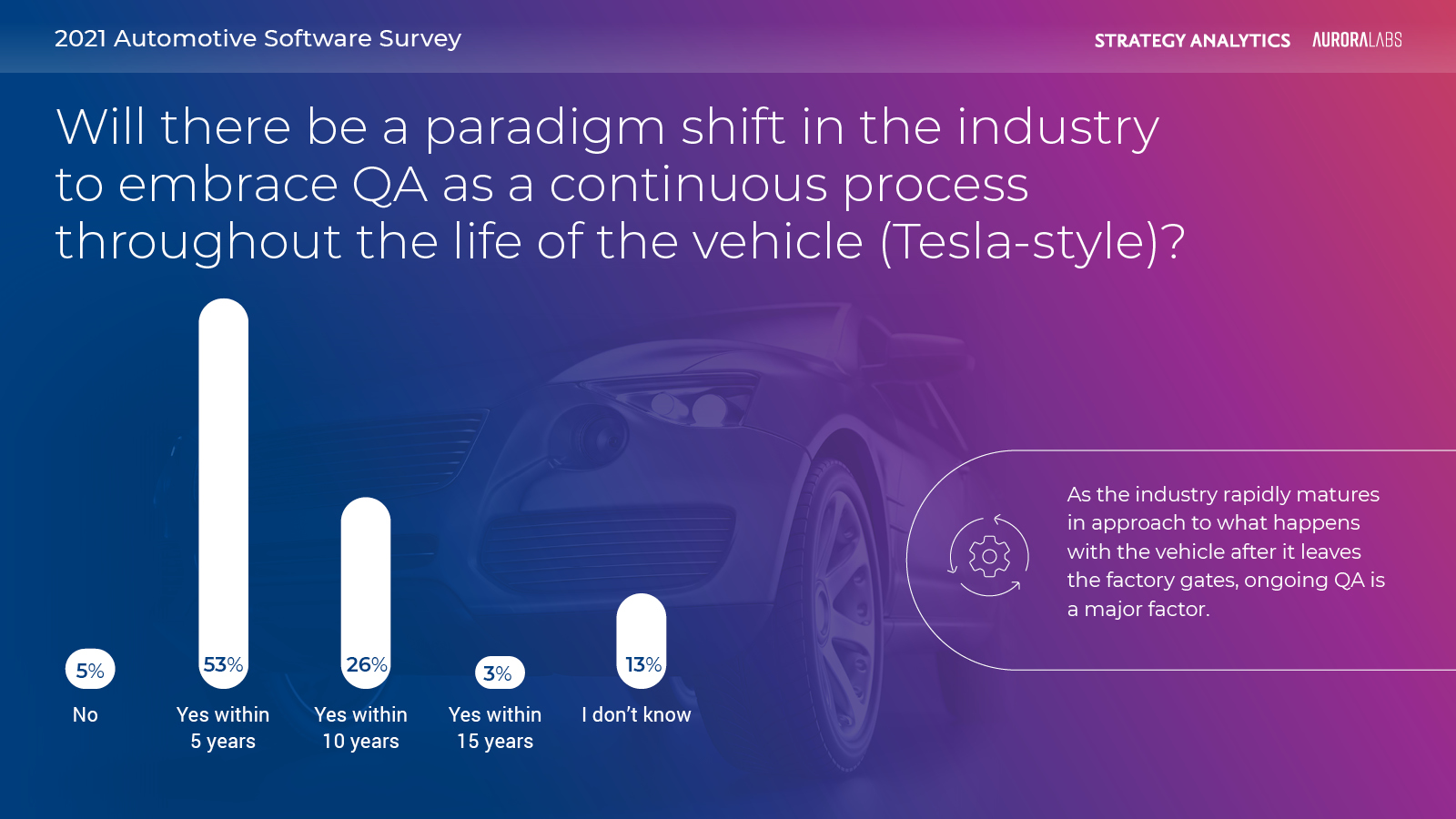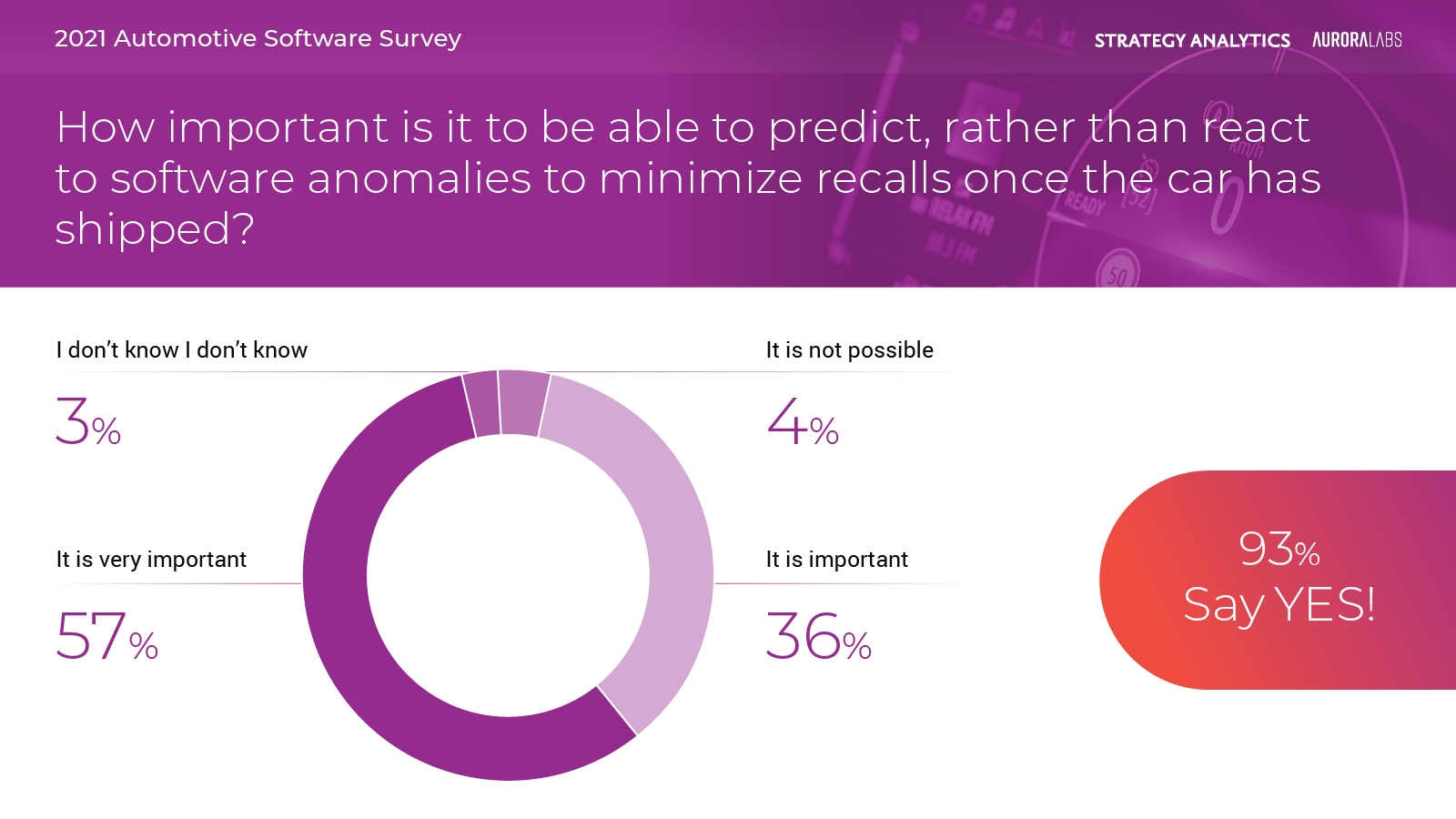Can you imagine manually QA’ing a system that looks like this?

We certainly cannot. And based on the recent Automotive Software Survey conducted by Strategy Analytics, neither can most industry developers:
The advent of technological advancements into vehicles represented by complex, interoperable and interconnected in-vehicle software systems present not only development challenges, but drastically increase the complexity of quality control.
As car makers and Tier-1 suppliers gear up to solve and support new quality control measures, we’d like to shine the light into some opportunities that rise from the growing complexities.
Opportunity: Implement continuous QA for vehicles that are on the road
As the automotive software industry follows software development trends, the pace is escalating using rapid development methodologies. The shift from the longer and phase-oriented development process to continued development is necessary to keep pace with the exponential growth of in-vehicle software to support electronic and software-led vehicles. The maturing software development methodologies from ‘v development to CI/CD create opportunities for ongoing and continuous quality control that will in turn increase customer satisfaction and prolong the value of the vehicle. Survey respondents also reaffirm this notion looking at upcoming new model development.
Opportunity: Conduct proactive QA to alleviate costly recalls
As car makers implement continuous monitoring and tracking of ‘on the road’ vehicles, they gain the power to be proactive about threats, software friction or new bugs. This can present a huge opportunity for a major paradigm shift in the automotive industry: vehicles can detect problems before they cause system failures and remotely fix them OTA in-lieu of lengthy and costly recalls and garage base visits.
The importance of proactive actions is strongly resonating within our survey respondents as well with 93% agree with this notion:
Opportunity: Accelerate the implementation of AI-powered Vehicle Software Intelligence
As outlined in the example above, ECUs and system capabilities within a vehicle are interrelated and have direct effects on each other – necessitating a deep and current understanding of their relationships and dependencies. Utilitrends in the Automotive Software industryzing AI and dynamic monitoring, Vehicle Software Intelligence technologies will be a must-have for developing, monitoring and testing connected vehicles. These technologies will not replace existing development and QA processes and tools, but rather be an additional intelligent layer to bring static data to life and give insights at the line-of-code resolution. At Aurora Labs, we strongly believe that Vehicle Software Intelligence is the key to solving development challenges and the early onset of these technologies will help the OEMs innovate and iterate faster.
To see additional , read the full Automotive Software Survey report.









 11 min read
11 min read
